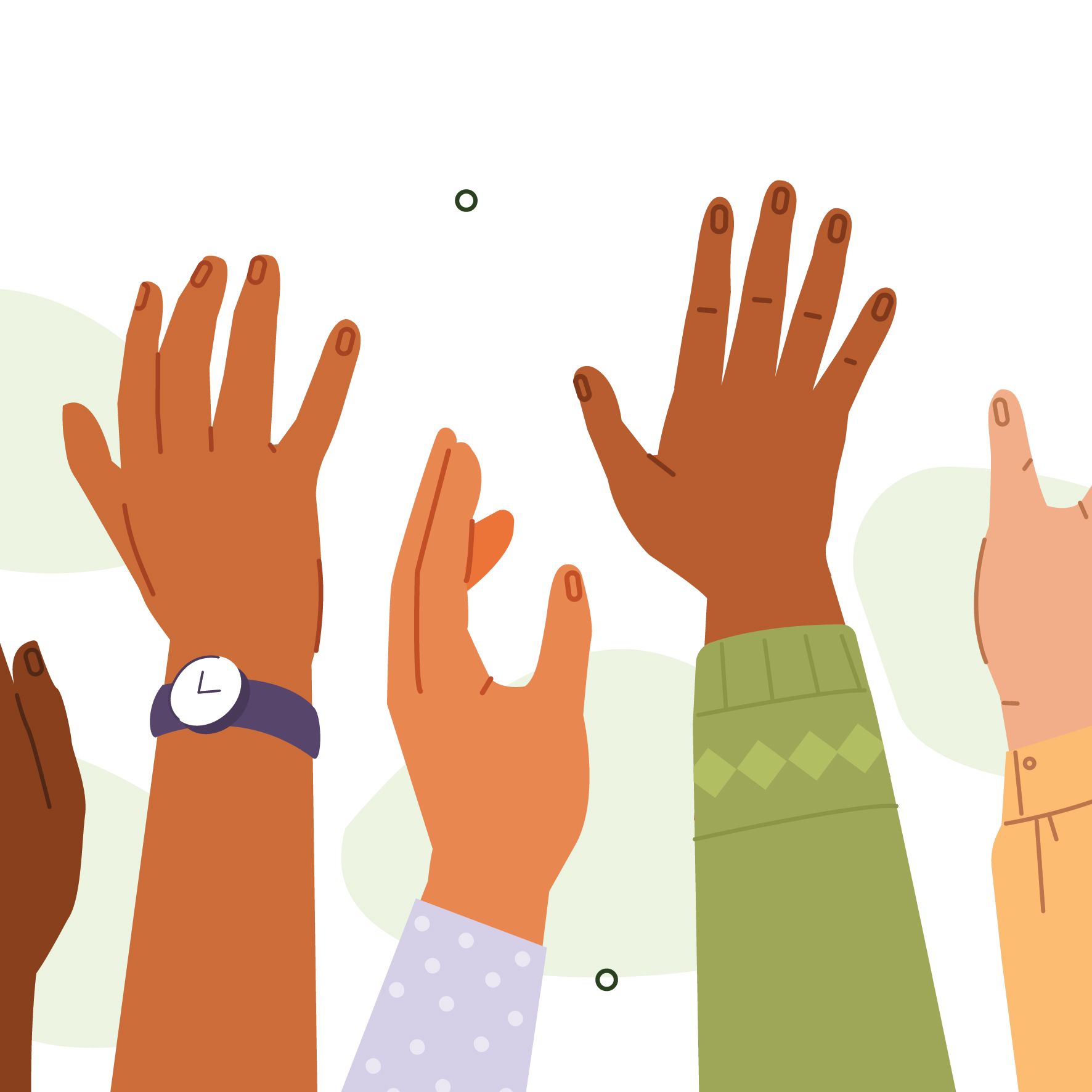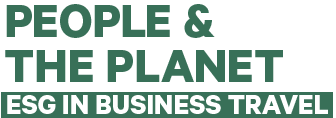DEI
THE BEAUTY OF DIVERSITY
While most are united on the importance of diversity, equity and inclusion initiatives, defining what that means and how to go about it is not so clear

Every workforce has a diverse community and in recent years DEI has rightly become a business priority. An increasing number of companies now detail initiatives linked to diversity, equity and inclusion in annual reports alongside revenue, profit margins and sustainability efforts.
But as DEI becomes further ingrained into corporate culture, has it also made its way into corporate travel programmes? And are suppliers doing enough to ensure they are truly inclusive and accessible?
“People want to know that employers care about them, not just in a transactional way but in a relationship way,” says Yvette Bryant, senior vice president of diversity, equity and inclusion at BCD Travel. “That means seeing me completely and seeing to my needs when I'm out on the road.”
In order to achieve this, Bryant says “most organisations are probably doing some level of engagement with their employees, so if the travel buyer isn't working with HR teams today, they can start to include some very specific DE&I and wellbeing questions”.
Flight Centre Travel Group’s diversity, equity and inclusion manager for the Americas, Emese Graham, says the first step in building an inclusive travel programme is collaborating with people who have “lived experience” with equity barriers.
“It's important to centre the people who have first-hand knowledge of what an equity barrier is and placing that knowledge and that experience at the forefront,” she says, advising that employee resource groups and establishing strong communication channels with travellers at every stage of travel can help to ensure all needs are considered.
“Addressing barriers is never going to be a one-size-fits-all solution because creating access for one traveller might create a barrier for another… Flexibility is the key,” she adds.
A recent Business Travel Show Europe poll revealed that most corporate travel programmes make provisions for individuals who are ‘marginalised’ on the basis of faith, race or religion (53 per cent). The research, which surveyed 376 travel and procurement managers based in Europe, revealed that some companies are also providing special consideration for solo female travellers (49 per cent), older people (47 per cent), travellers with accessibility requirements (47 per cent) and neurodiverse people (40 per cent).
According to the research, 46 per cent of companies also cater to the specific needs of LGBTQ+ travellers, up from 26 per cent in 2022, while a further 22 per cent plan to do so. Protections for the travelling LGBTQ+ workforce, particularly trans and non-binary individuals, have recently come into sharp focus following a rise of anti-LGBTQ+ legislation across the US.
"It’s really important that travel managers and travel security managers assume that they have LGBTQ+ travellers and thus do research proactively"
According to LGBTQ advocacy group Human Rights Campaign, more than 500 anti LGBTQ+ bills have been introduced to the state legislator this year and, as of July, 70 bills have been enacted into law. As a result, Canada in August issued a new travel advisory warning LGBTQ+ citizens of “certain barriers and risks” when travelling to the US.
“It’s really important that travel managers and travel security managers assume that they have LGBTQ+ travellers and thus do research proactively,” said International SOS security manager Mackenzie Grahek during a recent podcast by the Global Business Travel Association’s (GBTA) Risk Committee.
“Travel managers should know the risks to all [traveller] profiles wherever they plan on sending their staff and arm employees with that research,” she advised, adding that travel risks are “significantly higher” for trans individuals and that prior to any trip, travel managers and employees should proactively identify a safe healthcare provider – where their gender or sexual identity will be respected – in case of emergency.
To mark this year’s Pride Month in June, International SOS rolled out a “refreshed” version of its LGBTQ+ module, which has been designed with advice from LGBTQ+ rights charity Stonewall UK and features practical ways for organisations to promote safety for their LGBTQ+ travellers.
Despite recent backward steps, the US State Department last April introduced a third gender-neutral option on its passports, joining some 15 other countries including Denmark, Germany, Iceland, Malta and the Netherlands, which include the ‘X’ gender option.
Following this, American Express Global Business Travel updated its Neo online booking tool to allow travellers to create non-binary profiles and in May 2023 Dutch carrier KLM introduced neutral forms of address in its booking channels in the Netherlands, UK, Germany and the US.
TRAVELLER SAFETY IN RFPs
Major hotel groups like IHG, Marriott and Accor have made commitments to create diverse and inclusive workplaces as well as offer “inclusive hospitality” to guests. Recent DEI reports chart gender and racial diversity among leadership and the wider workforce, initiatives to ensure hotels are accessible for disabled travellers, and campaigns linked to LGBTQ+ committees.
Nevertheless, Carolyn Pearson, CEO at Maiden Voyage, a consultancy which advises on wellbeing and safety for diverse business travellers, says that many suppliers “still get the basics wrong”. She also highlighted that most “incidents” reported by solo female travellers occur in hotels because “it’s where travellers have a false sense of security”.
Pearson advises travel managers to “make demands of suppliers” in order to align travel procurement policies with corporate DEI policies – and said the hotel RFP is where buyers “have a lot of pulling power”.
Research from She Travel Club, an organisation that certifies hotels for female business travellers, has found that 70 per cent of female corporate travellers believe their employer should “take their safety more into account” when booking hotels.
Earlier this year, French travel management association AFTM announced a partnership with She Travel Club to jointly encourage hotel reservation platforms and travel management companies to “better take into account” the concerns of female business travellers when accommodation is being booked.
Corporate accommodation platform HRS also recently integrated data from safety and security assessment provider GeoSure into its procurement service, which provides “constantly updated” neighbourhood safety scores for more than 65,000 cities around the world, including scores specific to safety for women and diversity ratings for LGBTQ+ travellers.
HRS vice president of procurement consulting, Alexandra Saenz, told BTN Europe that while larger multinational clients are increasingly focused on safety for female solo travellers, savings still outweigh “overall security concerns” in hotel RFPs.
She says that around 60 per cent of HRS clients have the “savings first, security second scenario” as they consider hotel offers for 2024.

DIVERSE SOURCING STRATEGIES
TMCs are also providing consulting services to assist corporates with diverse and inclusive sourcing strategies as well as employee training. In August, BCD Travel inked a deal with Maiden Voyage to provide its corporate clients with educational tools to support DEI initiatives and consultancy services to help them establish inclusive traveller safety programmes.
“It’s encouraging to see our industry as a whole moving in this direction,” says BCD’s Bryant. “There seems to be a collective desire to make sustainable change, and that’s good for everyone. The challenge of course is where to start.”
Travis Felt, VP of strategic client solutions at TakeTwo, says the TMC has seen an uptick in DEI-related enquiries from clients looking to partner with like-minded suppliers. “We have a lot of interest in what we’re trying to do,” he says. “We are a certified LGBTQ business entity through the National LGBT Chamber of Commerce, so that has been a key differentiator… But it’s also important that we’re seeing these [DEI] questions come in on RFPs – ‘What does your culture look like?’ ‘How can you help us?’ – they’re all very related.”
American Express Global Business Travel’s head of global talent management, Christine Walsh, says DEI is “almost always” part of the RFP process today. “You probably wouldn’t have seen somebody like me sitting on a deal team five years ago, but now I will go out and meet with prospective clients to talk about our diversity and recruitment strategy and how we train our people,” she says.
“Clients want to know when we’re training our people to interact with their people that we have a mechanism and approach to understand their cultural nuances… and if [DEI] is really part of who you are and how you operate, then it’s not just in the winning business process, it’s also in the ongoing relationship,” she adds.
While DEI maturity levels among clients can differ across industries, Walsh says the TMC is “very often” asked about its supplier diversity spend and that clients are now also enquiring about diverse spending “a few layers down” the supply chain.
MEASURING PROGRESS
The very nature of diversity and inclusion, with nuanced minorities and cultural differences to take into consideration, means there are no standardised metrics to measure progress. Data privacy regulations and employment laws in some countries can also restrict the sharing of personal information.
“Some employees would not feel comfortable putting certain personal information about their needs in terms of DEI in their travel profile,” says Kerry Douglas, head of programme at the UK's Institute of Travel Management (ITM). “It’s a sensitive area, and travel managers need to navigate it carefully.”
An experienced travel manager at a global organisation, who spoke to BTN Europe under the guise of anonymity, said inclusive hiring practices need to move beyond mere box-ticking in order to effect cultural change.
“When I was promoted we had a quota of people from minority groups and [at the time] our head of DEI said to me: ‘it’s so nice to know that we’re meeting our quota’. It was so demoralising,” they said. “Yes, there needs to be measurement, but it’s about making it part of your everyday life. As a company you have your numbers, your stats, but what are you going to do with it? We need to make sure everyone becomes accountable,” they added.
Amex GBT’s Walsh says the TMC conducts surveys every six months to track employee engagement and sentiment around DEI. “A successful DEI programme has to be both internal and external,” says Walsh. “Start by understanding your population before seeking to drive broader systemic change.”
Gender parity in business travel is another area that’s difficult to contend with. Annual GBTA survey data from 2005 to 2019 reveals a persistent gender pay gap for travel managers in the US. A joint GBTA-Cvent global study published in June 2023 also suggested that representation of female travel managers narrows further up the pay scale as men appear to be overrepresented at high-travel spend companies, where the likelihood of a higher salary is greater.
"The next generation of travellers – Millennials, Gen Z and Alpha – will drive change as they are more open about expressing gender diversity and their vulnerabilities"
The GBTA Foundation – which raises and disburses funds for business travel industry-related initiatives on climate action, DEI and workforce development – recently brought together a ‘DEI Incubator Team’ made up of committee leaders and board directors to identify and prioritise “the most critical DEI gaps in the industry”.
A GBTA Foundation spokesperson told BTN Europe the incubator team is currently finalising the key priorities that will inform its roadmap to address those gaps in 2023 and into 2024.
“Policy changes and traveller education are the first steps,” says ITM’s Douglas. “The next generation of travellers – Millennials, Gen Z and Alpha – will also drive change as they are more open about expressing gender diversity and their vulnerabilities.”
“[DEI] needs to be part of your DNA,” added the global travel manager. “If you treat everyone as an equal, if you don’t have any preconceived ideas, and you believe that everyone has something to give… we’re all on the same platform.”
CASE STUDY: BLOOMBERG ADVANCES DEI IN CORPORATE TRAVEL
The Bloomberg travel programme highlights three pillars of DEI activities, which open better service channels to travellers who need accommodation, bring DE&I alignment to supplier sourcing and drive conversations around perceptions of business travel for different types of travellers, and breaking down barriers to others' lived experiences.
"One of the goals we established as a travel and expense team back in 2022 was to find the way to collaborate with our DEI team and see how we can both align," says Bloomberg global travel manager, Rafael Rosario, who was recently named a 2023 Best Practitioner by BTN Europe’s affiliate BTN for his work in advancing diversity, equity and inclusion in the software company’s travel programme.
Chief among Rosario's achievements in DEI is Bloomberg's system to identify, disclose with limitations and serve travellers who have unique needs. Travellers are informed of the systems now in place to formalise and give agents access to a traffic light-type system that indicates the kind of accommodation required.
Travellers opt into the programme, where their information is stored in a secure system outside of the travel profile that previously was used to indicate Covid-19 vaccination status. Rosario has reconfigured the system to address DEI needs. Dedicated agents are given access regionally to serve their local travellers; about 450 of Bloomberg's 11,000-plus travellers have a record in the system.
Rosario added that as a travel manager, he has worked to understand these types of individual needs for years, but only now has the technology in place to manage it at scale.
He has also worked across business units to align with Bloomberg Philanthropy to source travel contracts that enable him to offer special deals with preferred Bloomberg suppliers during periods in which Bloomberg is honouring a specific culture or group. For example, booking with a certain hotel group during Women's History Month may earn a small sum for a women's non-profit organisation that month and Bloomberg Philanthropy may be positioned to match the donation.
And finally, Rosario has created a quarterly podcast in which he invites diverse travellers to talk about their experiences while on the road for Bloomberg. Opening these conversations, he says, breaks through barriers and allows other travellers to bring more community and caring to their co-workers.



